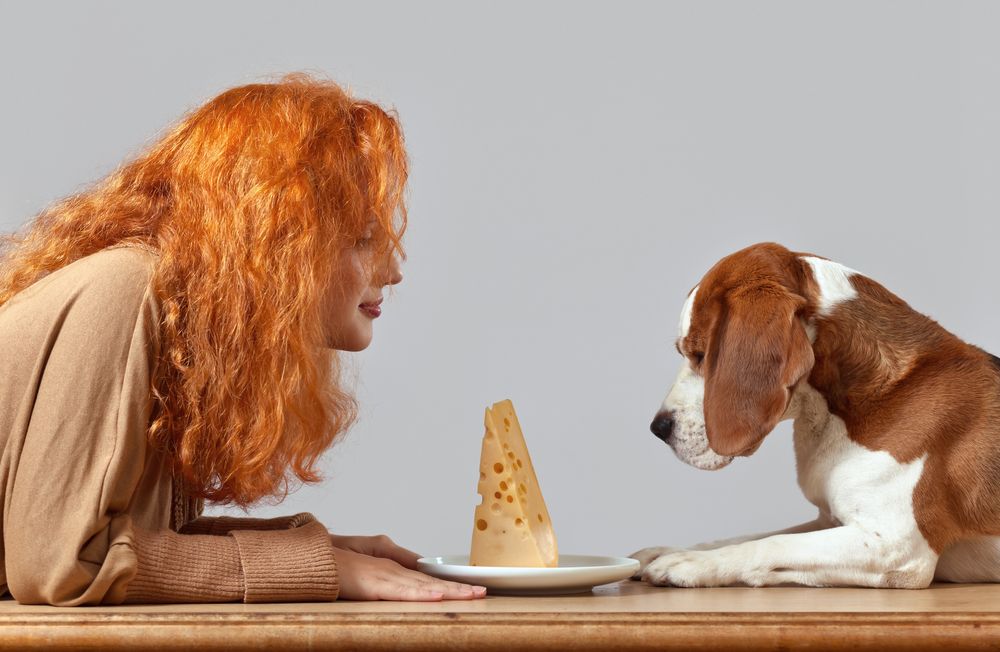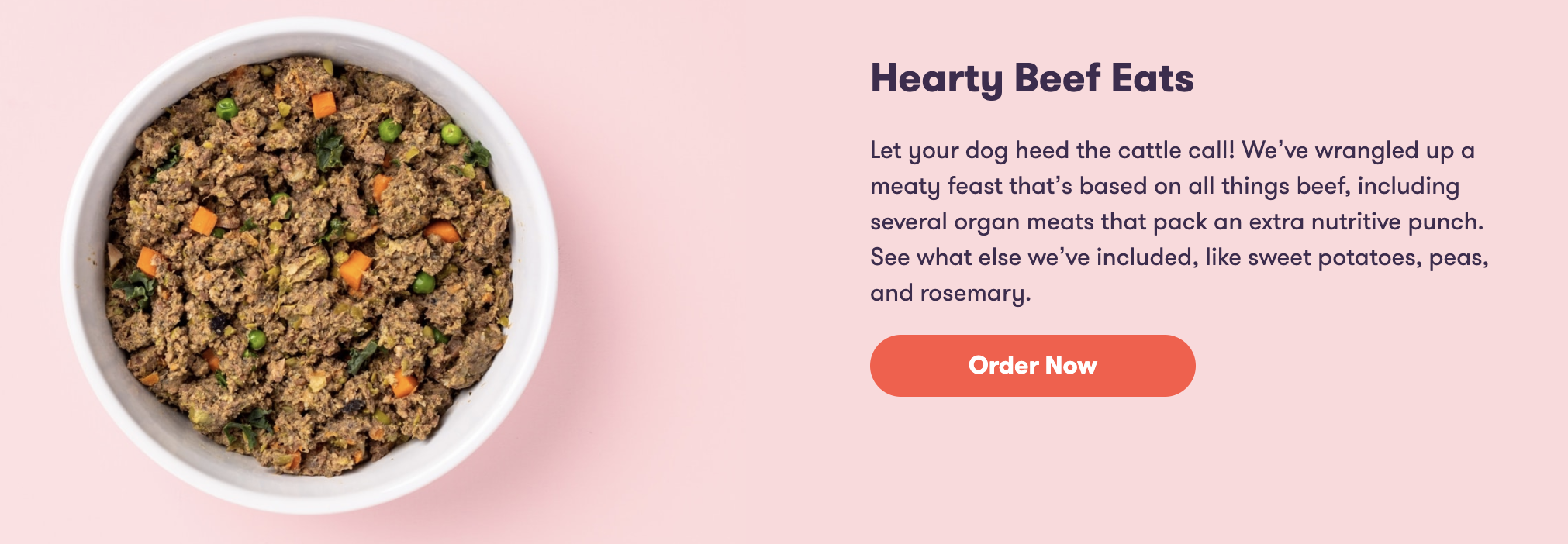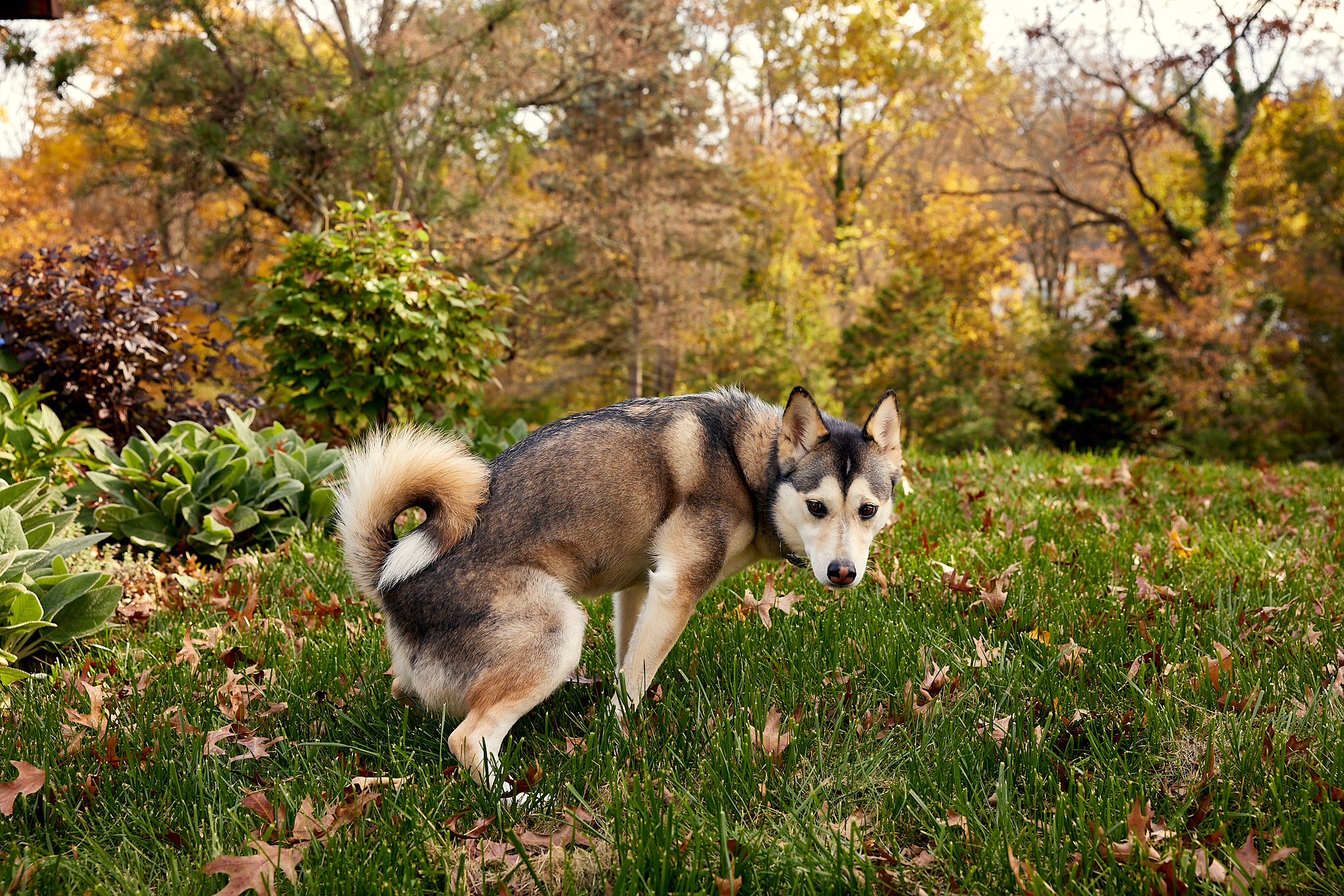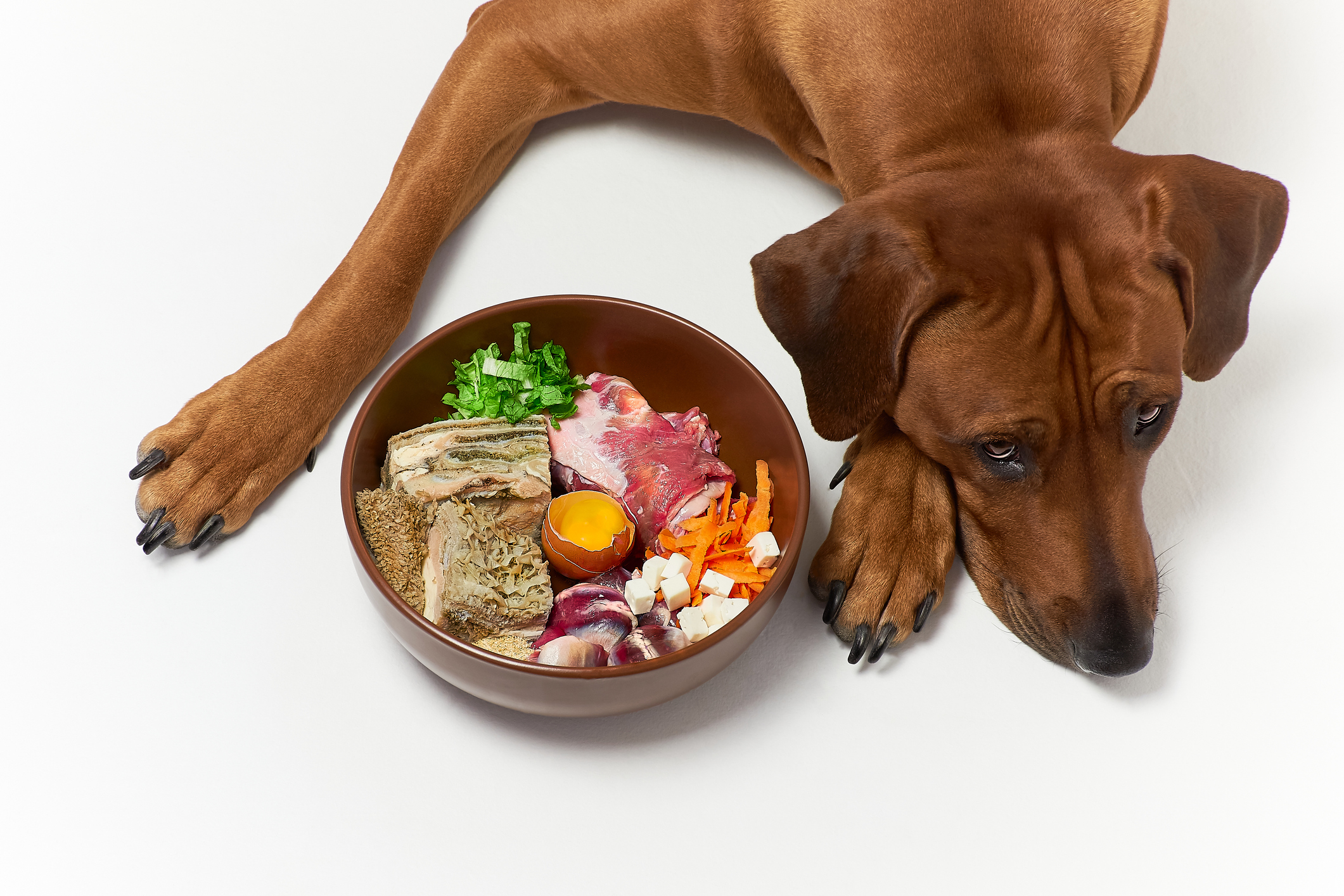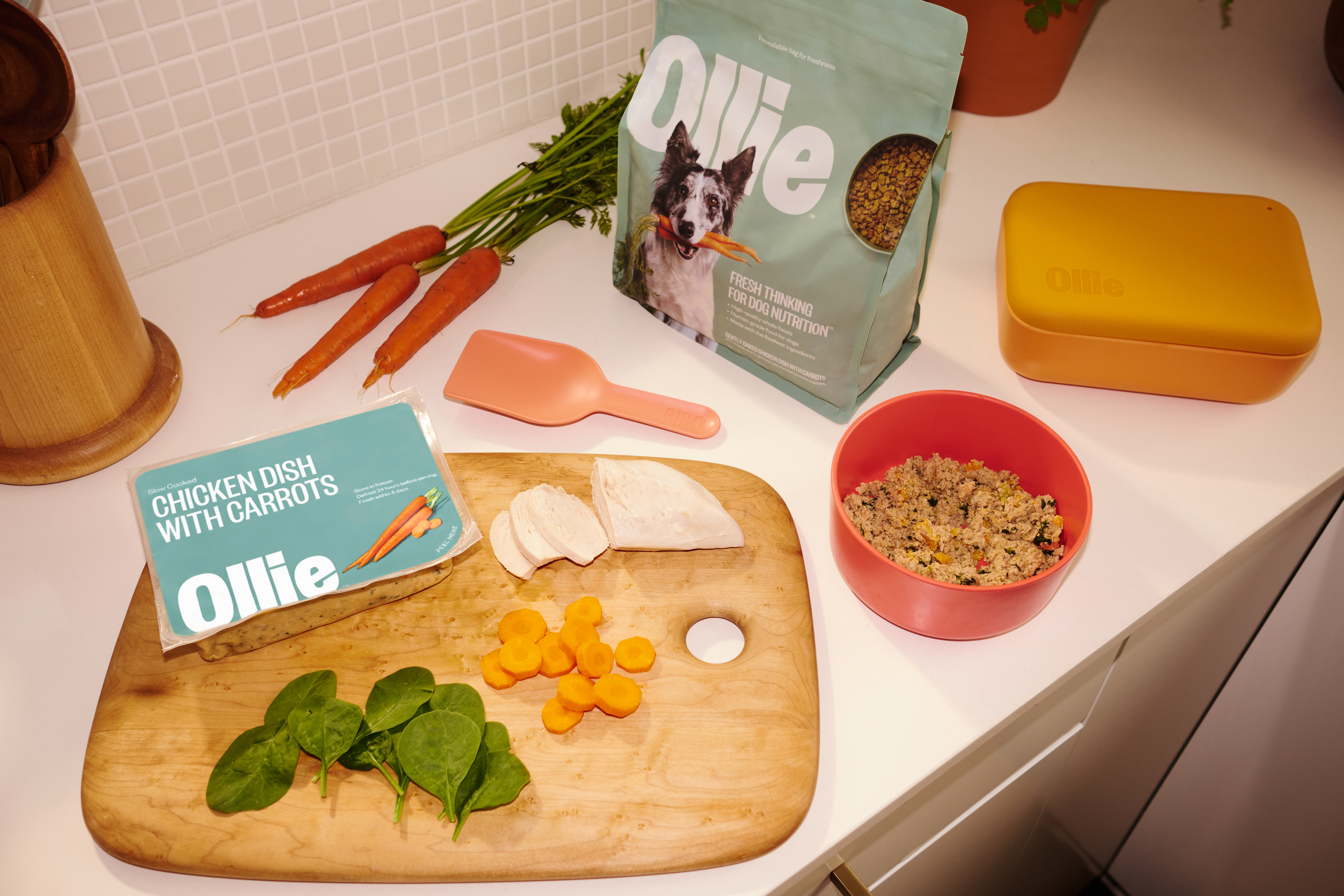Hey Ollie blog readers! We’re offering you an exclusive 60% OFF your starter box! Try now!
Like us, having a variety of foods in your dog’s diet can have tremendous health benefits for them. If your dog eats exactly the same food every day, while they may be getting complete nutrition, it might also be very boring. While you could eat steamed fish, broccoli, rice and blueberries every day every meal, would you really want to? It might get really boring really fast. Even though those foods are good for you, there are so many other ways to get adequate nutrition. The same is true for your dog. Even if your pup has a sensitive stomach you can still find ways to add some variety to your pup’s diet. One item you might consider adding is cheese. For many dogs, there are some practical reasons to share some cheese with your pup. We’ll break them down for you here.
3 Reasons why cheese is good for dogs
1. Cheese contains vitamins and fat
While cheese isn’t exactly a health food for your pup, it contains protein, calcium, vitamin A, essential fatty acids, and B-complex vitamins. All of which can be beneficial for your dog’s health. The calcium in cheese will help keep your pup’s bones healthy but we don’t recommend relying on cheese alone for your dog’s calcium needs.
2. Cheese can be used to hide pills
Ever had to give your pup a pill and spent half an hour chasing them around the house? Instead of chasing your dog around and then having to force a pill down their throat, in lieu of a pill pocket you can try hiding their medicine in a piece of cheese. You can use cream cheese if your pup won’t eat the pill wrapped in any other kind of cheese. This way you can completely cover the pill. Just make sure that your dog isn’t eating the cheese and spitting out the pill. Some dogs are just smart enough to figure out how to do this.
3. Cheese can help your dog with focus and training
If you’ve ever taken an obedience class with your dog, your trainer might have asked you to bring in some ‘high value’ treats. This simply means a treat that your pup will be really excited to work for. The definition of high value can vary from dog to dog, it’s all about what your dog likes best. Some trainers recommend using string cheese. It’s easy to pinch off little pieces in class and your dog will think it’s delicious!
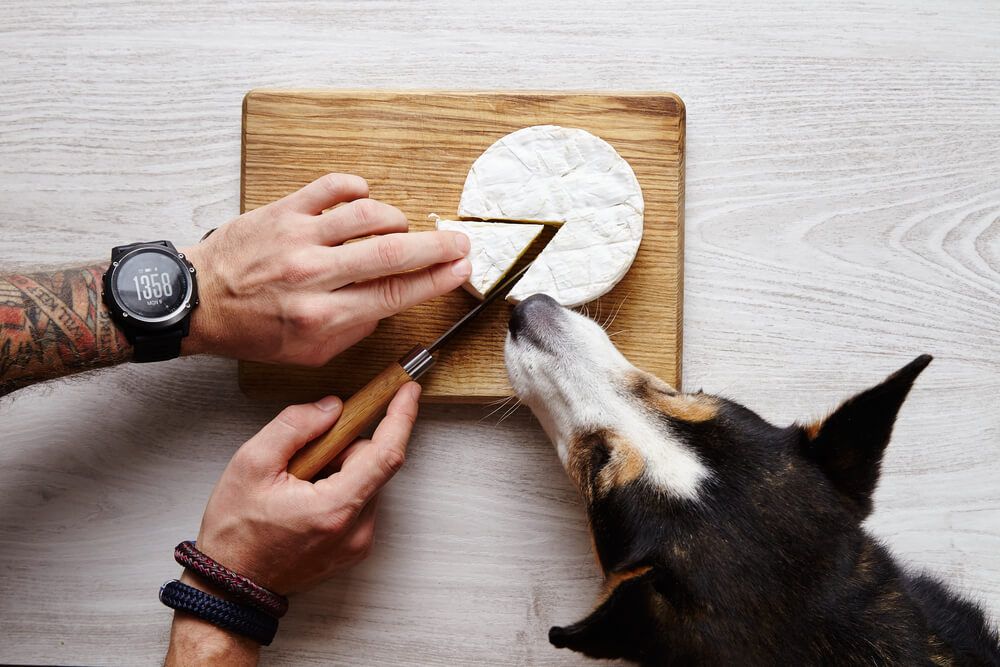
3 Things to consider before offering cheese to your pup
1. Avoid blue cheese and higher lactose cheese like brie
Due to the mold in blue cheese, it is best to skip sharing this type of cheese with your pup. Stick to cheeses that are both lower in fat and lactose to avoid any potential digestive issues. Brie and other triple creams are also a poor choice due to their high-fat content. Too much fat can lead to weight gain or a more serious condition like pancreatitis. Another consideration, check with your vet if your pup is taking certain meds. Some cheese can reduce the effectiveness of your pup’s medicine.
2. Use portion control and don’t overfeed your dog
Cheese in small quantities should not cause any issues for your pup. Too much cheese can give your dog digestive issues or make them sick if they have any lactose intolerance. Also, cheese is high in fat and calories so to avoid weight gain, don’t let your dog fill up on too much cheese.
3. If your dog is lactose intolerant or has a dairy allergy avoid feeding cheese
While cheese is meant to be a delicious treat, avoid feeding if your dog has lactose intolerance or a dairy allergy. Having a sick pup is absolutely zero fun. If cheese will cause vomiting, diarrhea or worse, you should avoid feeding cheese to your dog. You could try peanut butter, lean/low sodium deli meat, fresh fruit, or even their favorite flavor of Ollie if you need a high-value reward.
Giving your dog a healthy diet is so important. By keeping your pup well-fed and nourished you are helping them maintain a healthy weight, good energy levels, healthy skin, eyes, heart, coat and so much more. Adding treats, like cheese into your dog’s diet keeps them interested, especially food-motivated pups. Experiment with different healthy treats like peanut butter, chicken or sweet potato jerky, fresh fruit, chewy or smelly treats made in fun flavors your pup will love like salmon or beef. Remember to refer to the list of foods you should never feed to your pup, the list will include things like onions, chocolate, and grapes.
The Ollie blog is devoted to helping pet parents lead healthier lives with their pups. If you want to learn more about our fresh, human-grade food, check out MyOllie.com.
Tagged As:

The nutrition your dog needs,
the food they want.

Enjoying our articles? Subscribe our Newsletters and get new articles directly to your inbox
You might also like
3 July 2025
5 MINS READ
How Fresh Food Can Help Your Dog Have Perfect Poops
As a pup parent, you’re likely very familiar with your dog’s bathroom habits. While it may not be the most glamorous part of taking care of your pup, a dog’s stool can be one of the most dir…
by Ollie Pets
3 July 2025
5 MINS READ
Understanding the Risks of Raw Dog Food
When it comes to choosing the right diet for your dog, understanding the full picture is crucial for making an informed decision. In this article, we’ll dig deeper into what defines a raw diet, …
by Ollie Pets
3 July 2025
4 MINS READ
Understanding a Balanced Diet for Your Dog
As a dedicated pet parent, you want to provide the best for your dog, and that starts with their food bowl. We all understand the basics of a balanced diet for ourselves, but what does that look l…
by Ollie Pets
